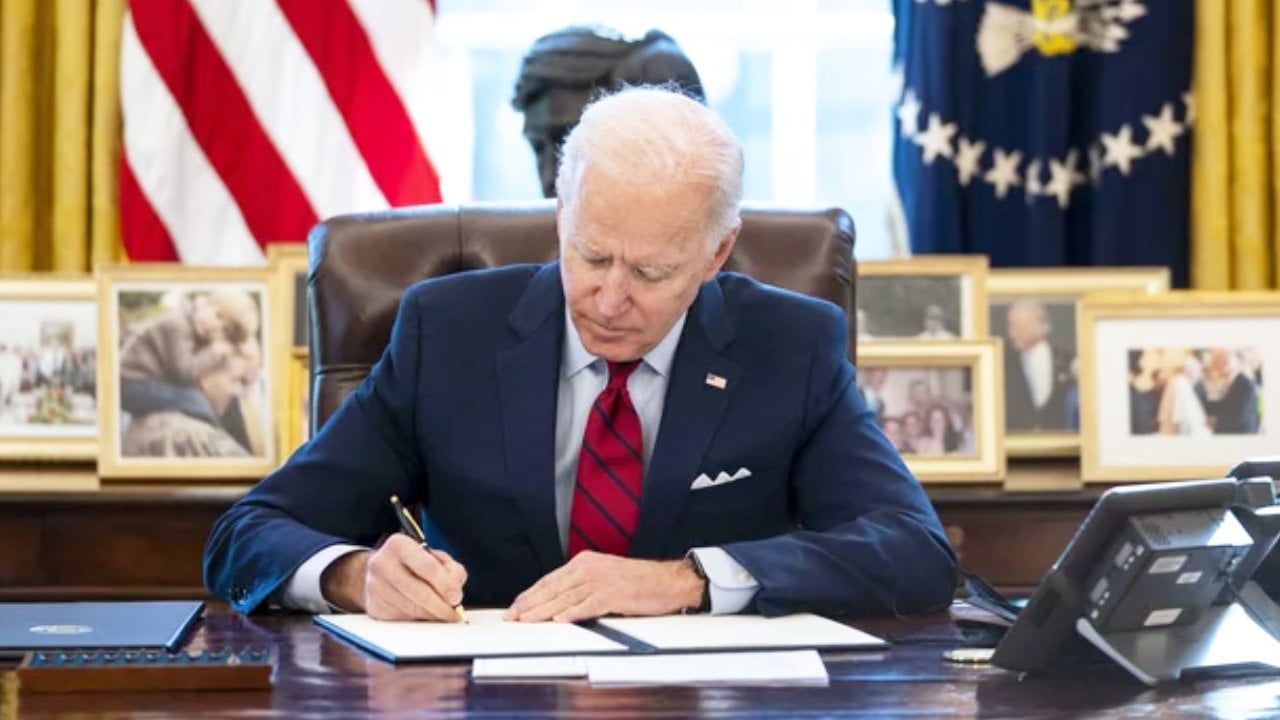
U.S. President Joe Biden has signed a “historic” executive order on crypto assets, establishing “a national policy for digital assets across six key priorities,” the White House stated. The executive order outlines “the first-ever, whole-of-government approach to addressing the risks and harnessing the potential benefits of digital assets and their underlying technology.”
President Joe Biden’s Executive Order on Crypto Signed
According to a White House announcement, U.S. President Joe Biden has signed the long-awaited executive orders on crypto Wednesday. Biden had been expected to sign this executive order towards the end of February. Russia, however, began the invasion of Ukraine in that week.
Noting that “The United States must maintain technological leadership in this rapidly growing space,” the White House detailed that the executive order outlines:
A whole-of government approach is used to harness the potential rewards and mitigate the risks of digital assets.
“The order lays out a national policy for digital assets across six key priorities,” the announcement states. Each priority in digital assets is given an executive order that directs different government agencies and departments to create policy recommendations within a specific timeframe.
The first priority is to “protect U.S. consumers, investors, and businesses,” which the executive order directs the Department of the Treasury and other agencies “to assess and develop policy recommendations.”
The second priority is to “protect U.S. and global financial stability.”
The third priority is to “mitigate the illicit finance and national security risks posed by the illicit use of digital assets.” For this, the White House described that the executive order directs:
This unprecedented collaboration among all U.S. agencies is necessary to reduce these risks.
“It also directs agencies to work with our allies and partners to ensure international frameworks, capabilities, and partnerships are aligned and responsive to risks,” the announcement notes.
The fourth priority is to “promote U.S. leadership in technology and economic competitiveness to reinforce U.S. leadership in the global financial system” by directing the Department of Commerce to establish an appropriate framework.
Two more priorities are to “support technological advances and ensure responsible development and use of digital assets” and to “explore a U.S. central bank digital currency (CBDC).”
Treasury Department and Secretary Yellen Play Key Roles
One of the six priorities outlined in Biden’s executive order is to “promote equitable access to safe and affordable financial services.” For this, the White House explained: “The secretary of the treasury, working with all relevant agencies, will produce a report on the future of money and payment systems.” The report shall be submitted to Biden within 180 days.
Treasury Secretary Janet Yellen issued a statement on Biden’s executive order, stating:
President Biden’s historic executive order calls for a coordinated and comprehensive approach to digital asset policy.
“Under the executive order, Treasury and interagency partners will build upon the recently published National Risk Assessments, which identify key illicit financing risks associated with digital assets,” Yellen elaborated.
This priority will “address risks related to illicit finance, protecting consumers and investors, and preventing threats to the financial system and broader economy,” the treasury secretary clarified.
Following Biden’s executive order announcement, the chairman of the U.S. Securities and Exchange Commission (SEC), Gary Gensler, commented:
I look forward to collaborating with colleagues across the government to achieve important public policy goals: protecting investors & consumers, guarding against illicit activity, & helping ensure financial stability.
What do you think about President Joe Biden’s executive order on crypto? Please leave your comments below.
Image creditShutterstock. Pixabay. Wiki Commons
DisclaimerThis information is provided for educational purposes only. This article is not intended to be a solicitation or offer to sell or buy any product, service, or company. Bitcoin.com is not a provider of investment, tax, legal or accounting advice. The author and the company are not responsible for any loss or damage caused by the content or use of any goods, services, or information mentioned in the article.